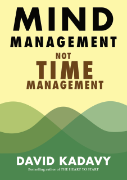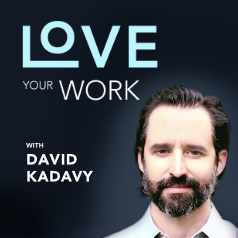Subscribe to blog updates via email »
Shun the Unearned – Love Your Work, Episode 238
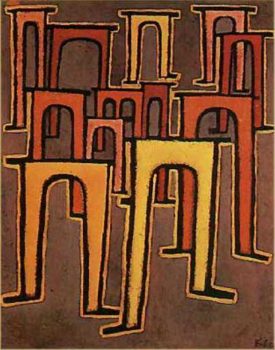 In New York City, sometime around the beginning of the twentieth century, a young art student sat for a portrait.
In New York City, sometime around the beginning of the twentieth century, a young art student sat for a portrait.
The artist who painted this portrait won a prestigious award for that portrait. The young woman who sat for the portrait suddenly became a sought-after model. She could actually earn money sitting for portraits.
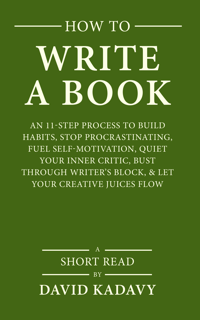
WANT TO WRITE A BOOK?
Download your FREE copy of How to Write a Book »
(for a limited time)
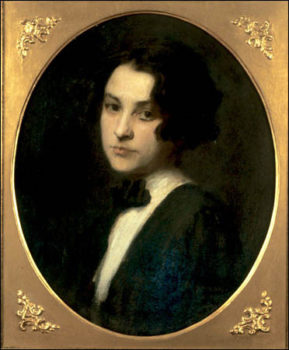
She needed that money. Her family was poor, and art school — especially art school in New York City — was expensive.
But she decided to never model again.
Listen to the Podcast
- Listen in iTunes >>
- Download as an MP3 by right-clicking here and choosing “save as.”
- RSS feed for Love Your Work
The tough decision that made a good artist a great artist
This young artist later recalled the moment she decided to stop sitting for portraits. She drew a line down the middle of a sheet of paper, so that there were now two columns.
At the top of one column, she wrote “yes.” At the top of the other column, she wrote “no.” She said, “The essential question was always, if you do this, can you do that?”
Here’s one thing that probably focused her attention on the question of whether or not she could keep modeling: She had skipped class to sit for that prize-winning portrait.
So, if she was going to model, could she go to class? If she was going to model, could she put in the work necessary to achieve her dream of becoming a great artist?
Her answer was, “no,” she could not keep modeling. And art history should thank her for it. Her name was Georgia O’Keeffe, and she lived on to become one of the greatest artists of the twentieth century. One of her paintings was sold at auction several years ago for more than forty million dollars.
The unearned can hurt more than it helps
I don’t want to assume that because O’Keeffe is one of my favorite artists — not just for her work but also for her contrarian personality — that you, too know who I’m talking about. You’ve seen her work: abstract close-ups of flowers and cattle skulls, paintings of the desert landscape surrounding the New Mexico estate where she spent most of her time.
This story about quitting modeling has one good lesson in it: That if you want to be great at something, you sometimes have to quit something else that you’re merely good at.
That’s a valuable lesson. It’s the obvious one. It’s not the lesson I want to talk about.
I want to talk about the unearned. That when you accept something you didn’t earn, it often hurts you more than it helps you.
Money you didn’t earn will make you foolish with finances. Flattery you didn’t earn will make you settle for mediocrity. Power you didn’t earn will disconnect you from reality.
If you want to become great at what you do, you have to be on the lookout for the unearned. You have to shun the unearned.
The unearned is an easy path to mediocrity
When I tweeted about the dangers of the unearned, most people agreed. Some people were suspicious. “What about Universal Basic Income?,” they’d say.
I don’t have an opinion on Universal Basic Income. I haven’t thought about it enough. But this is not about Universal Basic Income. As I understand it UBI would be about getting your basic needs met. Do you have a roof over your head, and food in your stomach?
Having a roof over your head and food in your stomach is a good thing, especially if you don’t have to work for it. But beyond that, the unearned becomes dangerous.
When I’m talking about the dangers of the unearned, I’m not talking about the basics. When you have your basic needs met, it’s an easy path to mediocrity. I don’t mean that in a bad way. I happen to think it would be nice if we lived in a society where more people could get by being mediocre. That competition wouldn’t be so fierce that you need to be the very best in your field to have a chance at survival.
But, this isn’t about basic needs. This isn’t about mediocrity. The unearned is an easy path to mediocrity, and that’s fine. But if you want to be great, you need to be on the lookout for the unearned. The unearned is an easy path to mediocrity, but the unearned is an obstacle to mastery.
The great Georgia O’Keeffe shunned the unearned
Yes, Georgia O’Keeffe could have “earned” money sitting for portraits in the sense that she would be doing the work of sitting. But she didn’t want it. Much of what she would have “earned” would have been unearned.
What Georgia didn’t earn was being an attractive young woman, that people wanted to paint portraits of. That didn’t get her much in the early 1900’s. She couldn’t even vote. She was a young woman, trying to make it as an artist in America. At the time, that was unheard of.
Georgia instinctively knew the dangers of what she could get being an attractive young woman, and she actively rejected those things. Even then she was already dressing daily in her trademark black frock. She sewed them herself, and they happened to have the effect of hiding her figure.
As Georgia grew into a famous artist, she consistently shunned the unearned when others tried to categorize her not just as an artist, but as a “woman artist.” When Peggy Guggenheim invited Georgia to exhibit her work in a show of women painters, Georgia rejected the invitation and proclaimed, “I am not a woman painter!”
What would have been the harm of Georgia exhibiting in a collection of women artists? Certainly her achievements as an artist were more difficult because of her standing in society as a woman. But she still saw exhibitions like this as the unearned. It would cloud her judgement of what really mattered. What really mattered was not being a great “woman artist.” What really mattered was being a great artist.
The artist whose work was forgotten
We normally don’t think that someone in a marginalized class as getting much of anything unearned. So maybe the dangers of the unearned will be more clear if we look at the man who painted that prize-winning portrait of Georgia which launched her potential modeling career.
The painter of that portrait was a classmate of Georgia’s. He also went on to become a successful painter. He studied in Paris, he won numerous awards, he rubbed shoulders with the great painters of his time. People like Robert Henri and Edward Hopper. He was regularly commissioned to paint portraits of famous actors. He was inducted into the National Academy of Design, which includes members such as architects Frank Ghery and Frank Lloyd Wright. At the height of his fame, Esquire magazine named him America’s most important living artist.
His name was Eugene Speicher Ever heard of him? Me neither.
After a successful career as an artist in his lifetime, Speicher has been forgotten. His work used to be exhibited in New York’s Museum of Modern Art, and in the Metropolitan Museum of Art. Today, most of his work has been sold off to smaller museums, or taken off display.
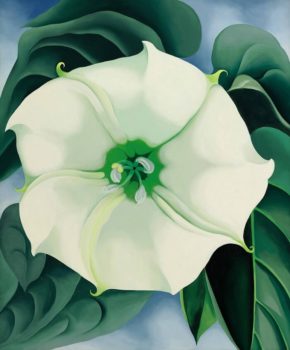
In 2014, as one of Georgia O’Keeffe’s paintings was being sold for more than forty million dollars, one museum in New York did hold a retrospective exhibition of Speicher’s work. No, it wasn’t the Met or the Guggenheim. It was a small museum, somewhere between Manhattan and Albany.
The big question behind this exhibition: How is it possible that Eugene Speicher was so successful and famous during his lifetime, only to be — as one critic put it — “virtually erased from the canon of American art history.” In articles about the exhibition, critics threw about theories: Was it because he switched from portraiture to landscape painting? Was it the financial pressures of supporting a family?
It’s funny, in terms of the impact of his art, Speicher didn’t achieve mastery like Georgia did. You could say he achieved mediocrity.
He embraced the unearned, and stayed mediocre
I have a theory why Speicher’s work was forgotten: He never got really good. He didn’t shun the unearned. Worse yet, Speicher embraced the unearned.
To say Eugene Speicher has been forgotten is an exaggeration. He does live on in art history for one incident. This incident supports my theory.
When Speicher asked Georgia to sit for what would become a prize-winning portrait, Georgia hesitated. She wasn’t sure it was worth skipping class to sit for that portrait. And that’s when Speicher showed his true colors.
Georgia later recalled what Speicher said: “It doesn’t matter what you do, I’m going to be a great painter, and you will probably end up teaching painting in some girls’ school.”
Talk about not shunning the unearned. Speicher thought he could shovel the unearned into his coffers. He knew that just because he was a man, he had a better shot at making it as an artist than Georgia had.
The unearned: An easy path to mediocrity, an obstacle to mastery
Look at these two differing attitudes when it comes the unearned: Georgia didn’t even want to sit for portraits. It may have helped pay for art school tuition, but it was going to take away from the work that mattered. The work of becoming a great artist.
Speicher thought that, because he was a man, he was entitled to a successful career as an artist. Speicher floated through his career, earning commissions, being invited to display his work in exhibitions. He was good enough to get a little further, with the help of the unearned.
Georgia didn’t want a single thing she didn’t earn. Because she didn’t have money — not even the money she could have made sitting for portraits — she had to drop out of art school and leave New York. She supported herself through various jobs around the country.
It probably looked like Speicher was right, at least for a little while, one of those jobs was, indeed, teaching at some girls’ school.
But, Georgia got the last laugh. Eugene Speicher — well, the thing he’s most famous for today — is that he painted a portrait of one of the twentieth century’s greatest artists.
Images: Revolution of the Viaduct, Paul Klee; Georgia O’Keeffe (“Patsy”), Eugene Speicher; Jimson Weed/White Flower No. 1, Georgia O’Keeffe
Thanks for sharing my work!
On Twitter, thank you to @jovvvian, @allenthird, @niceguylife2, and @coreyhainesco.
My Weekly Newsletter: Love Mondays
Start off each week with a dose of inspiration to help you make it as a creative. Sign up at: kadavy.net/mondays
Join the Patreon for (new) bonus content!
I've been adding lots of new content to Patreon. Join the Patreon »
Subscribe to Love Your Work
Listen to the Podcast
- Listen in iTunes >>
- Download as an MP3 by right-clicking here and choosing “save as.”
- RSS feed for Love Your Work
Theme music: Dorena “At Sea”, from the album About Everything And More. By Arrangement with Deep Elm Records. Listen on Spotify »

